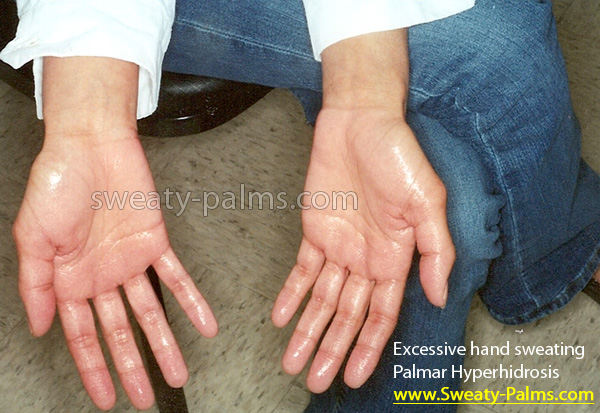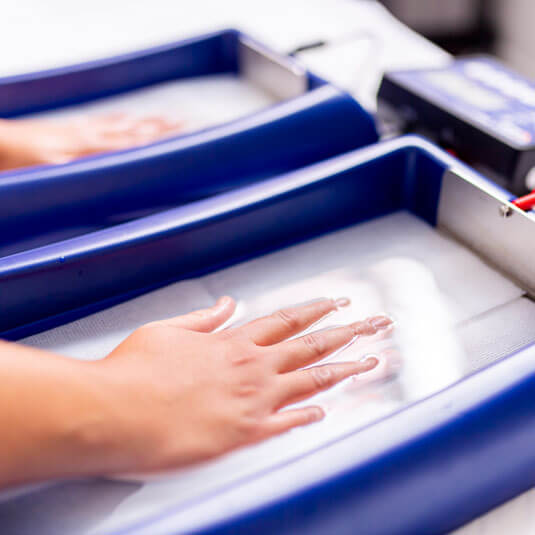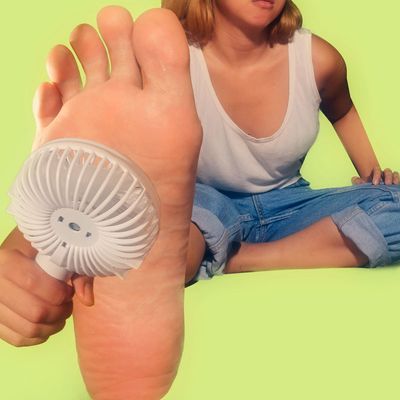Comprehensive Overview to Sweaty Hands Treatment: Proven Dermatology Strategies
Comprehensive Overview to Sweaty Hands Treatment: Proven Dermatology Strategies
Blog Article
Recognizing the Origin of Excessive Sweating and Its Influence On Day-to-day Live
While it is typically recognized as a physiological action to control body temperature, the triggers for excessive sweating can vary widely among individuals, incorporating not only physical variables yet additionally emotional and emotional elements. By diving right into the root causes of hyperhidrosis and exploring its multifaceted results, a much deeper understanding of this prevalent problem can be gained, shedding light on the intricacies that people grappling with excessive sweating navigate on a daily basis.
Physiology of Sweat Glands
The law of sweat production, a vital physical process, is primarily regulated by the activity of sweat glands distributed across the human body. Sweat glands are classified into two primary types: eccrine and apocrine glands.
When the body temperature level rises, either because of physical task, high temperatures, or psychological stress, the nerve system sets off the sweat glands to generate sweat. This sweat is composed primarily of water and electrolytes like sodium and chloride. The procedure of sweat manufacturing is essential for preserving the body's inner temperature within a slim, optimum array, highlighting the important role sweat glands play in human physiology.
Triggers for Excessive Sweating
In comprehending the origin triggers of excessive sweating, it is important to recognize the triggers that can lead to this physiological response. Physical physical effort, high temperature levels, and spicy foods are also recognized to set off too much sweating in people susceptible to this problem.
Furthermore, medications such as some antidepressants, opioids, and particular supplements can likewise serve as triggers for hyperhidrosis. Understanding these triggers is crucial in managing excessive sweating properly - Treatment for hyperhydrosis of hands. By recognizing and attending to the specific triggers that motivate too much sweating in a specific, doctor can develop customized treatment plans to relieve this condition and boost the individual's lifestyle
Medical Issue Associated
Connected with extreme sweating are numerous medical problems that can intensify this physical response. One common condition is hyperhidrosis, a condition characterized by unusually enhanced sweating that goes beyond the body's thermoregulatory demands. This can show up in focal locations like the hands, soles, underarms, or face, influencing an individual's quality of life due to social embarrassment and pain.
Additionally, endocrine disorders such as hyperthyroidism, diabetic issues, and menopausal hot flashes can additionally lead to excessive sweating. Hyperthyroidism triggers an overproduction of thyroid hormones, increasing metabolic rate and triggering sweating.
Moreover, infections like consumption, endocarditis, and hiv have actually been connected with evening sweats, a common sign known to disrupt rest and impact general health. These medical problems highlight the varied series of underlying factors that can add to excessive sweating, requiring comprehensive examination and management by medical care experts.
Emotional and Psychological Factors

Influence on Social Communications
Too much sweating can have profound results on an individual's capacity to involve pleasantly in social interactions. The visible signs of sweat look at more info stains or wet patches on clothing can result in humiliation and self-consciousness, causing individuals from this source to withdraw from social situations. This withdrawal can impact connections, limit social activities, and prevent specialist and personal growth.

In addition, the stress and anxiety and self-worth problems originating from extreme sweating can influence interaction and interpersonal skills. People may have a hard time to concentrate on discussions, take part in group activities, or share themselves with confidence. This can cause sensations of seclusion and solitude, as social links become challenging to preserve.
Conclusion

While it is frequently understood as a physiological reaction to regulate body temperature click here for info level, the triggers for extreme sweating can differ widely among individuals, including not only physical elements however likewise emotional and mental elements. By delving into the origin triggers of hyperhidrosis and discovering its diverse results, a much deeper understanding of this prevalent concern can be gained, losing light on the complexities that individuals grappling with extreme sweating navigate on a day-to-day basis.
Physical exertion, high temperature levels, and spicy foods are likewise recognized to cause excessive sweating in people vulnerable to this condition. By identifying and addressing the particular triggers that prompt too much sweating in an individual, medical care providers can develop tailored treatment strategies to relieve this condition and improve the person's high quality of life.
Too much sweating can have extensive effects on an individual's ability to engage comfortably in social interactions.
Report this page